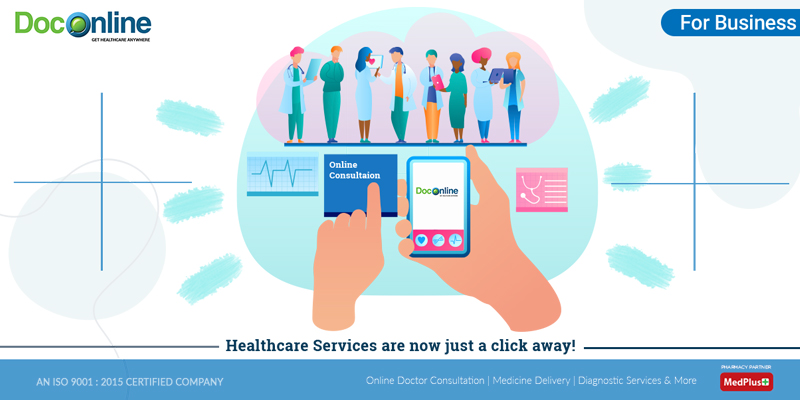Unlocking the Secrets of Subscription Based Healthcare for Better Patient Outcomes
Unlocking the Secrets of Subscription Based Healthcare for Better Patient Outcomes
Blog Article
The Increase of Subscription-Based Medical Care and Its Effect on Person Care
As health care develops, the subscription-based model is getting grip, guaranteeing to reinvent client treatment by providing predictability and availability. The capacity for these versions to reshape healthcare distribution raises pushing inquiries about their lasting sustainability and inclusivity. Are these membership services the future of health care, or do they risk leaving at risk populations behind?
Recognizing Membership Healthcare Versions
Understanding the principle of subscription healthcare versions entails checking out a transformative technique to clinical services that highlights price and ease of access. These versions, commonly described as direct medical care (DPC) or concierge medicine, have actually become ingenious choices to conventional fee-for-service healthcare systems. Membership health care enables patients to pay a fixed month-to-month or annual fee for a specified collection of clinical solutions, which may include unrestricted workplace gos to, routine exams, and standard laboratory examinations, without the need for conventional insurance policy payment.
The structure of subscription health care designs is created to simplify patient treatment by getting rid of third-party payers and intricate payment codes, thus reducing administrative concerns. Doctor can focus much more on individual care, promoting stronger patient-provider relationships. This model also promotes preventative treatment by encouraging routine sees, as the monetary barrier of per-visit charges is eliminated.
The membership design typically empowers healthcare companies to manage smaller person panels, allowing for more personalized treatment. It straightens economic motivations with client wellness end results, as providers are encouraged to keep individual fulfillment and well-being. In general, understanding registration health care models calls for recognizing their possible to improve just how care is delivered and accessed.
Advantages for People and Carriers

For carriers, subscription-based designs use the possibility to deepen patient-provider partnerships. With a steady profits stream, healthcare experts can devote more time to each client, causing a much more tailored and comprehensive treatment experience. This design also lowers reliance on high patient quantities, relieving fatigue and boosting task contentment. The emphasis on preventative care within registration strategies can lead to far better individual outcomes and reduced lasting health care costs. By concentrating on constant care, service providers can address concerns before they intensify, inevitably benefiting the healthcare system overall by minimizing the burden on emergency situation and acute treatment services.
Worries and challenges
While subscription-based original site medical care models present countless advantages, they additionally come with a collection of difficulties and worries that should be dealt with. This raises ethical inquiries concerning fair access to healthcare solutions.
Financial sustainability of subscription-based versions is one more concern. Suppliers should balance the set earnings from memberships with the variable costs of medical care services, which might rise and fall because of unanticipated medical needs. This can develop pressure to restrict services or rise charges, potentially influencing individual fulfillment and care quality.
Furthermore, regulative oversight of subscription-based healthcare versions is still developing. The lack of standardized structures can result in inconsistent solution quality and liability, complicating initiatives to guarantee person security. The combination of modern technology-- often a cornerstone of these designs-- elevates questions regarding information privacy and safety, as delicate patient info might be vulnerable to breaches. Attending to these obstacles is essential for the effective and fair application of subscription-based medical care.
Impact on Patient-Doctor Relationships
One significant effect of subscription-based medical care models on patient-doctor connections is the capacity for boosted connection and personalized treatment. By adopting a subscription model, physicians can manage a smaller patient panel, enabling more dedicated time with each individual. This increased availability cultivates a much deeper understanding of a client's clinical history, lifestyle, and choices, making it possible for much more tailored treatment strategies and treatments.

However, it is very important to recognize that while subscription-based versions might benefit those that can manage them, they could inadvertently expand health care disparities. Clients that are unable to join these designs may experience reduced accessibility to customized care, possibly impacting their partnerships with doctor. Therefore, while the subscription version provides encouraging visit this web-site advantages for patient-doctor partnerships, it likewise poses obstacles that need to be resolved to guarantee fair healthcare accessibility.
Future of Healthcare Accessibility

The function of innovation can not be overlooked in this improvement. Telemedicine platforms and digital health documents facilitate seamless interaction in between people and doctor, breaking down geographical and logistical barriers. Furthermore, developments in expert system and information analytics can even more customize treatment by anticipating client requirements and optimizing therapy strategies.
Nonetheless, the future of health care accessibility additionally provides difficulties, such as making certain equity across different socio-economic teams. Policymakers and medical care companies should work together to bridge the electronic divide, making sure that subscription-based versions stay affordable and inclusive. As these systems develop, they hold the promise of making medical care a lot more accessible, effective, and patient-centric.
Final Thought
Subscription-based medical care designs are improving client care by giving a stable expense framework and improving availability. The surge of subscription-based medical care motivates aggressive patient engagement, which has the potential to enhance patient outcomes and complete satisfaction, indicating a transformative change in healthcare delivery.
As health care develops, the subscription-based design is obtaining grip, guaranteeing to transform person treatment by providing predictability and ease of access.Subscription-based medical care versions offer distinct advantages for both individuals and service providers, boosting the total medical care experience.As medical care systems develop, the future of health care accessibility often hinges on the assimilation of innovative designs and modern technologies.Subscription-based medical care models are improving person treatment by providing a steady cost structure and enhancing accessibility. Visit This Link The rise of subscription-based health care urges proactive client involvement, which has the prospective to boost client end results and contentment, indicating a transformative change in medical care shipment.
Report this page